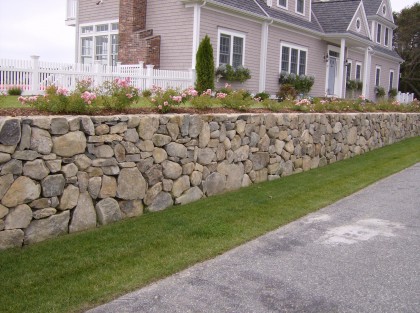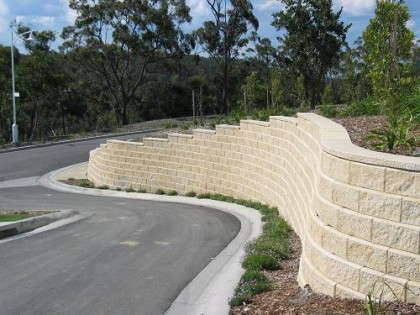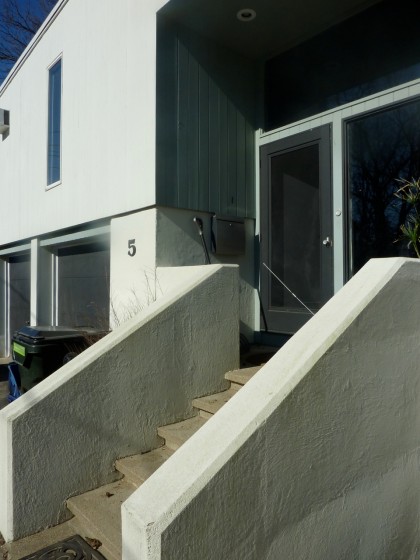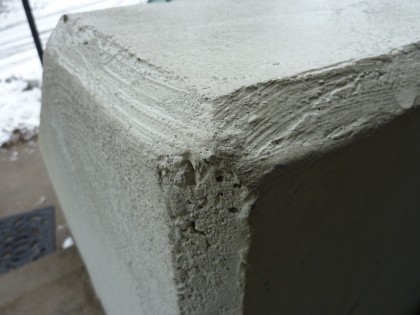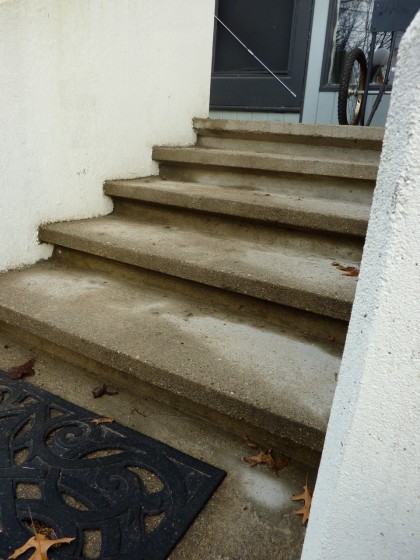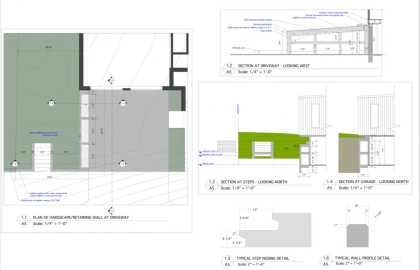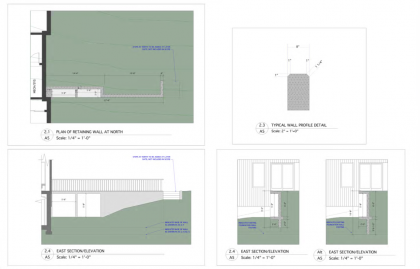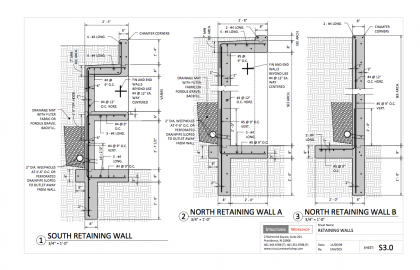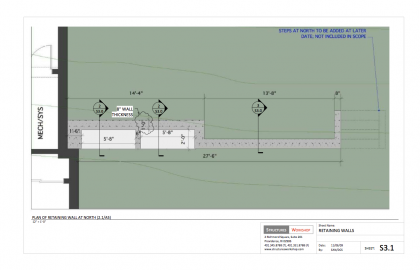Our yard yearns to be a garden. Sadly, it’s more like a ski jump. Without walls to tame the slope, nothing can get planted and the yard is basically unusable. The hardscaping really is the skeleton for any landscaping to come. Here’s the down-and-dirty decision-making for retaining walls.
What to build them out of?
We briefly entertained the idea of replacing our rotting timber retaining walls with stone. True to New England, yes…
But not in keeping with the style of the house. And because of the height we need, we’d still require concrete and rebar and whatnot to keep them from toppling over.
We talked to contractors about keyed block…
Absolutely the fastest, easiest, cheapest alternative. You see keyed block used in Lowe’s and Home Depot parking lots — a lot. Maybe that’s why it’s just not for us.
Those two choices eliminated, we took a closer look at what we have to work with. Both retaining walls actually touch the house’s concrete foundation… they’re kind of an extension of the house out into the landscape. When you think of it that way, it just makes sense to go with concrete as the wall material. Easy choice.
How should they look?
We want to echo a few design details from the house to tie the walls in visually…
Angle. We want the driveway wall to pick up on the walls of our front steps.
Beveled edges. We want this detail everywhere.
We want to build some function into the concrete walls — why not, right? In front, that means wood storage. Out back, small tool storage. We also wanted easy access to the yard from the front, which means adding steps…
Any new concrete steps need to look like the original ones.
Who’s perfect to help?
In the hunt for help on the interior remodel, I was lucky to come across Markus Berger, president of Inside Out Design and assistant professor of interior architecture at RISD. He’s daring. Talented. Loves our funky house. Understands our passion for modern. Great reasons for him to work with us on plans for the inside — and outside, on the retaining walls. Naomi Clare is his able assistant. Love her.
Both walls are well over 4′ tall. In Providence, that means you need an engineer to cover structural requirements and get your project approved by the city. Markus hooked us up with Erik Anders Nelson — an extremely clever engineer working at Structures Workshop, also an adjunct professor at RISD.
Got plans?
Heck yeah, we got plans! I’ll cut to the chase, since we’re playing catch-up anyway… Click the images to biggify.
Design for the back wall:
Engineering plans:
Actual walls up next! Bear with me, we’re almost caught up.
